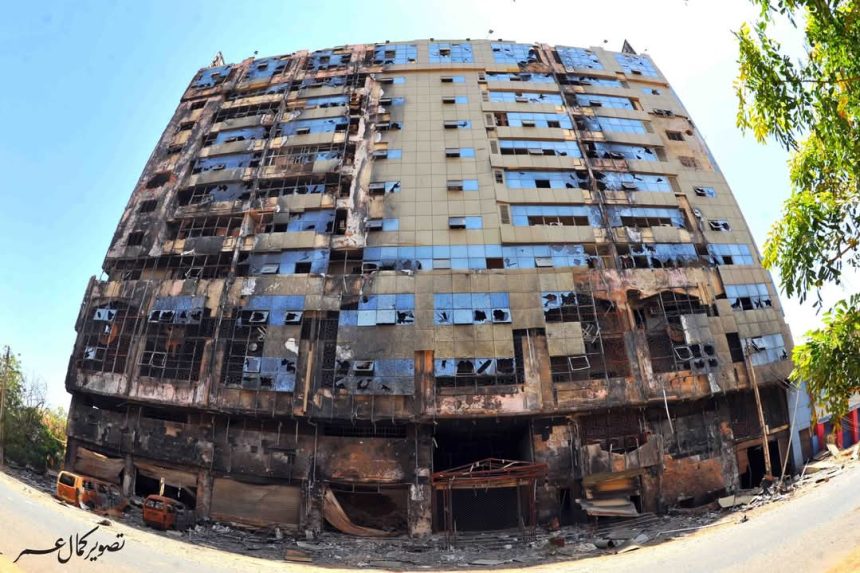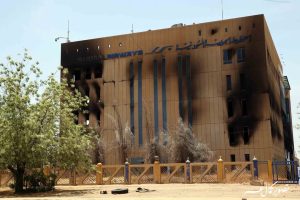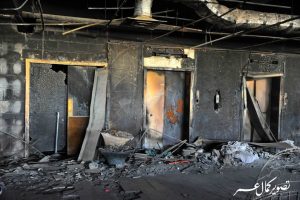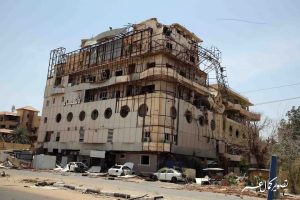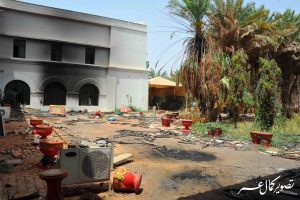Sudan, (SONNA) — Two years have passed since Sudan descended into a nightmare of bloodshed, displacement, and starvation. On April 15, 2023, a power struggle between Sudan’s military leader, General Abdel Fattah al-Burhan, and Rapid Support Forces (RSF) warlord General Mohamed Hamdan Dagalo (Hemedti) erupted into full-scale war, plunging the nation into one of the worst humanitarian crises of our time.
Sudan now lies in ruins. Cities have been reduced to rubble, families torn apart, and millions pushed to the brink of survival. Yet, as the world’s attention shifts to other conflicts, Sudan’s suffering unfolds in silence, a silence that speaks volumes about global indifference.
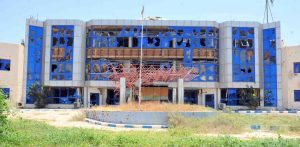
As Sudan marks two years of relentless warfare this week, the conflict has reached new depths of barbarity. The latest atrocity came on April 11, when Rapid Support Forces (RSF) militants launched coordinated ground and air assaults on the Zamzam and Abu Shouk displacement camps near Al Fasher, North Darfur. According to Brownland News, these attacks killed over 100 civilians, including more than 20 children and claimed the lives of nine humanitarian workers operating one of the last functioning health posts in the area.
“This represents yet another deadly and unacceptable escalation,” stated United Nations Resident and Humanitarian Coordinator Clementine Nkweta-Salami in a searing condemnation. Her words echo across a conflict that has now displaced 13 million Sudanese—the largest such crisis globally, while half the population faces starvation. Yet these statistics fail to convey the human reality: mothers burying children in shallow graves, aid workers slaughtered at their clinics, and entire generations being erased.
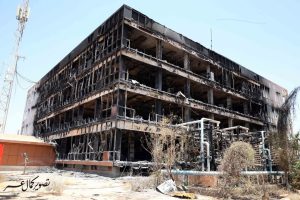
The April 11 attacks epitomize the RSF’s brutal playbook. Zamzam and Abu Shouk—camps sheltering 700,000 displaced Darfuris—were bombarded from multiple directions, trapping families who had already fled multiple waves of violence. “These families, many of whom have already been displaced multiple times, are once again caught in the crossfire, with nowhere safe to go,” Nkweta-Salami emphasized.
The killing of humanitarian workers—targeted while running a vital health post—marks a particularly sinister escalation. It follows a well-documented pattern: since 2023, the RSF has systematically attacked displacement camps, raped women as a weapon of war, and ethnically cleansed non-Arab communities. The UN confirms that the latest violence violates Security Council Resolution 2736, which explicitly demands protection for civilians and aid workers.
The numbers are staggering, but they fail to capture the full horror. Thousands have been killed, many buried in unmarked graves. Over 13 million people—nearly a quarter of Sudan’s population—have been displaced, creating the largest internal displacement crisis in the world. Half of Sudan’s 50 million people now face acute hunger, with famine officially declared in Darfur.
The RSF, a paramilitary force born from the Janjaweed militias responsible for the Darfur genocide two decades ago, has unleashed a campaign of terror. Entire villages have been burned to the ground. Women and girls have been subjected to systematic rape, while boys and men are executed in the streets. In El Fasher, the last major city in Darfur not under RSF control, recent attacks have left hundreds dead, though the true toll is feared to be much higher.
“Sudan is not forgotten—it is ignored,” says Leni Kinzli of the World Food Programme. While other conflicts dominate headlines, Sudan’s suffering remains in the shadows. International journalists are barred from entering, leaving atrocities undocumented. Humanitarian aid is obstructed, leaving millions to starve. Diplomatic efforts have yielded little more than empty promises.
Even when the United States declared the RSF’s actions genocide earlier this year, the world barely reacted. The silence is deafening—and deadly.
Behind every statistic is a story of unimaginable suffering. Ten-year-old Awadin Mohammed lies motionless in a hospital bed, his small body torn apart by shrapnel. He does not know if his parents are alive. Fatima, a mother of four, walked for weeks through the desert to reach Chad, clutching her only surviving child. The other three perished from hunger along the way. Ahmed, a Masalit elder, watched as RSF fighters slaughtered his sons and told the women of his village they would “bear Arab babies.”
These are not just victims of war—they are victims of global apathy.
The world can no longer look away. Sudan needs an immediate, enforced ceasefire. Humanitarian aid must reach those in need without obstruction. The International Criminal Court must investigate and prosecute those responsible for atrocities. A unified peace process, led by Sudanese civilians rather than warring generals, must be prioritized. Most importantly, the world must listen. From Somalia to the rest of Africa, from the halls of the United Nations to the streets of global capitals, Sudan’s cries for help must be amplified.
Two years ago, Sudan’s war began in darkness. Today, that darkness deepens. But the people of Sudan have not given up. They bury their dead, shelter their children, and cling to hope.
The question is: Will the world stand with them, or will it continue to look away?
For the mothers of Darfur, the orphans of Khartoum, and the millions fleeing in terror—silence is not an option.
Sudan’s pain is our pain. Its war is our shame. And its peace must become our mission.
By Abdiqani Abdullahi Ahmed
For Somali National News Agency
Images by Brown Land News Sudan

